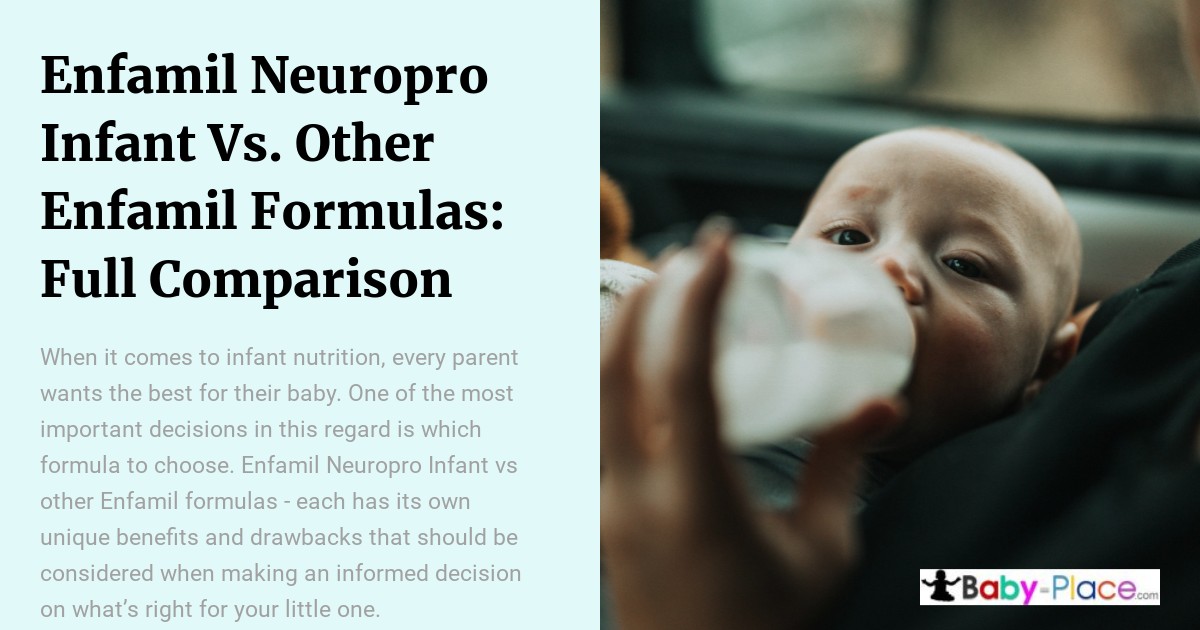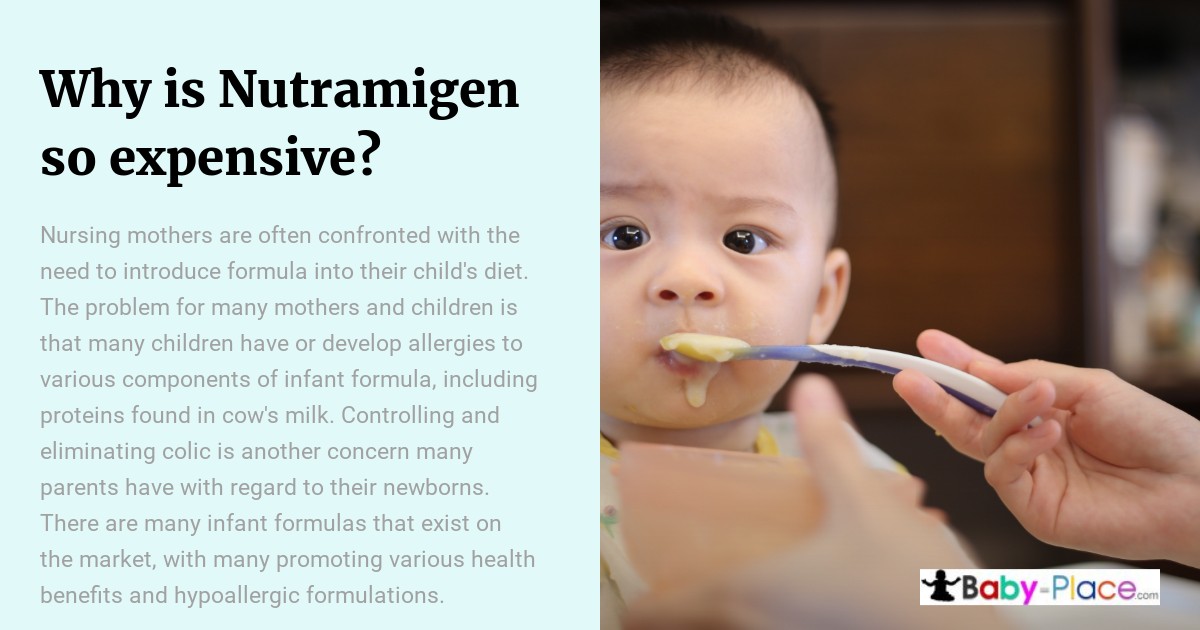I often get asked about the signs formula isn’t agreeing with your baby. It can be difficult to tell when something is wrong because babies are so little and can’t always express exactly what they are feeling or experiencing. Fortunately, there are some key indicators that parents should look out for if they suspect their baby might not be responding well to the formula they’re taking in. In this article, we will explore these warning signs and discuss how you can determine if it’s time to switch formulas or try another option entirely.
When introducing any new food source into an infant’s diet, it is important to pay attention to their response in order to ensure proper growth and development. Formula-fed infants may experience different reactions than those who are breastfed as formula contains more concentrated nutrients and could potentially cause digestive discomfort if not properly digested by the body. With that being said, here are several common indications that indicate your baby’s formula doesn’t agree with them:
Excessive gas, frequent irritability after feedings, hard stools/constipation, diarrhea/loose stools, rashes around the mouth area (in extreme cases), vomiting shortly after eating or excessive spit up during and after meals – all of these symptoms can signify that your baby is having trouble digesting his or her formula correctly. If you notice any of these symptoms, it is important to talk to your doctor right away as he or she will be able to help you determine which type of formula would best meet the needs of your child.
Definition Of Infant Formula
Infant formula is a type of manufactured food specifically designed to meet the nutritional needs of babies from birth until they are old enough to transition to solid foods. For example, Laura’s baby was struggling with weight gain and her pediatrician suggested she switch him over to an infant formula that contained more protein than breast milk.
The primary ingredients in infant formulas include proteins derived from cow’s milk, vegetable oils for energy, minerals like calcium and iron, vitamins A, B, C and D as well as other essential nutrients needed for healthy growth and development. While most brands use lactose as their carbohydrate source due to its digestibility profile compared to other sugars found in nature such as glucose or fructose, some infants may need special formulations that contain hydrolyzed proteins because they have difficulty digesting intact proteins. Other specialized formulas can also be available for premature babies who require extra calories and specific nutrient ratios.
It is important for parents to remember that there are different types of infant formulas on the market today so it is best to talk with your pediatrician about which one would work best for your little one based on their individual health needs.
Types Of Infant Formula
When it comes to feeding infants, there are several different types of infant formula available on the market. The most common form is cow’s milk-based formula, which contains proteins, carbohydrates and fats that are found in regular cow’s milk as well as additional vitamins and minerals. This type of formula usually takes a bit longer for babies to digest than other formulas, so it can be helpful if your baby has difficulty with digestion or constipation. Soy-based formulas are an alternative option for those who have allergies to dairy products or who follow vegetarian diets; they contain non-dairy protein sources such as soybeans instead of cow’s milk. There is also specialized hypoallergenic formula designed for babies who suffer from severe food allergies due to their more easily digestible ingredients and unique processing methods. Finally, hydrolyzed formulas may help reduce symptoms associated with colic in some cases since the proteins in these formulas have been broken down into smaller pieces. It is important to speak with a pediatrician before deciding on the best formula for your child since all babies are unique and have their own nutritional needs.
Possible Allergens Or Intolerances
Caring for a baby can be a complex puzzle; at times, it may seem like the pieces just don’t fit together. If your baby’s formula doesn’t agree with them, there are numerous potential allergens or intolerances to consider.
Just as tiny jigsaw pieces come together to form an image, so too must we piece together clues from our baby’s symptoms and diet in order to solve the mystery of what is making them unwell. Common allergens include dairy products, soy, eggs, wheat and nuts – all of which could potentially be causing distress if they have been introduced into their diet. Food intolerances can also cause issues; these involve difficulty digesting certain foods such as legumes, grains or additives.
In order to identify any possible allergies or intolerances in your little one, you may need to consult a pediatric nutritionist who will help guide you through food elimination trials and other tests that may pinpoint the problem source. Taking this step can provide peace of mind – both for yourself and your precious bundle of joy!
Symptoms Of An Allergy Or Intolerance
It’s important to recognize the signs and symptoms of an allergy or intolerance in order to give your baby a nutritionally balanced diet. Common signs can include skin rashes, eczema, and hives, as well as digestive issues like vomiting, diarrhea or constipation. Your baby may also experience wheezing, coughing, sneezing, and difficulty breathing. If you suspect that your baby could have an allergic reaction to something they ingested, it is best to seek medical attention right away.
In addition to physical reactions, some babies may be sensitive to certain food additives such as dyes or preservatives. In this case, look for items labeled “all natural” with no artificial ingredients. Also pay close attention when introducing new foods into their diets; if your child experiences any change in behavior after eating a particular item then discontinue using it immediately. As always consult with your pediatrician before making drastic changes to your baby’s diet and remember that all children are different so what works for one might not work for another.
Risk Factors For Sensitivity To Formula
It’s important to be aware of the risk factors when it comes to sensitivity to formula. According to recent research, up to 60% of infants are sensitive or allergic to some components in a typical baby formula.
Here are three key points that can increase an infant’s chance for developing a sensitivity:
- The presence of cow milk protein allergies in either parent
- A family history of food allergies and/or intolerances
- Environmental factors such as exposure to allergens like pollen or dust mites
For families with any one or more of these risk factors, consulting their pediatrician before introducing formula is essential. It is possible to test for sensitivities beforehand and discuss alternative feeding options if needed. Nutritionists may recommend hypoallergenic formulas which have been broken down into smaller parts so they’re easier for babies to digest. To ensure proper nutrition while avoiding further complications due to allergy concerns, parents should seek guidance from their child’s healthcare provider when making decisions about what type of formula best suits their needs.
Diagnosing An Allergy Or Intolerance
If you suspect your baby has an allergy or intolerance to a certain food, it’s important to get them tested. The best way to do this is by visiting a pediatric allergist for skin prick and blood tests. These tests will help determine what allergen is causing the reaction and how severe it may be.
It can also be helpful to keep a journal of your baby’s diet and any reactions they have afterwards. This will give you more information about which foods are causing their symptoms so that you can eliminate them from their diet until further testing confirms allergies or intolerances. You should consult with your healthcare team before eliminating any foods from your child’s diet as some nutrients may need supplemental sources in order to provide complete nutrition.
Differentiating Between Allergies And Other Issues
Figuratively speaking, when it comes to diagnosing an allergy or intolerance in a baby, the stakes are high. The challenge of determining whether your infant has an adverse reaction to certain foods is daunting. As a pediatric nutritionist, I have seen firsthand how complicated this process can be.
The signs formula doesn’t always agree with your baby’s health, and that’s okay. Allergies and intolerances exist on different levels; while allergies involve extreme reactions such as hives, rashes, and difficulty breathing, intolerances can cause milder symptoms like bloating and upset stomachs. It is important to identify which one may be affecting your child before you make any drastic dietary changes for them.
To differentiate between these two conditions, it is best to consult with your healthcare provider who will help conduct tests to determine what could be causing the issue. They may also suggest eliminating specific food from your baby’s diet for a few weeks at a time – known as an elimination diet – so they can observe any improvements in their symptoms over time. Additionally, keeping track of everything they eat and drink each day along with any associated reactions can provide valuable information about which foods might need further investigation down the line.
Choosing A Hypoallergenic Formula
If your baby has a sensitivity to certain proteins or other ingredients, it’s important to choose a hypoallergenic formula. Hypoallergenic formulas are specially created with fewer allergens and reduced amounts of lactose, making them easier for babies to digest. These formulas come in both cow’s milk-based and soy-based varieties.
When selecting a hypoallergenic formula, check the label carefully to make sure that all the necessary vitamins, minerals, fats and carbohydrates are included as recommended by pediatric nutritionists. Also look at the list of ingredients and avoid anything unfamiliar or questionable. If you have any questions about what is best for your baby’s nutritional needs, talk to their doctor before starting a new diet plan. With careful consideration when choosing a hypoallergenic formula, parents can give their little ones the nourishment they need while avoiding potential allergic reactions caused by common food allergies.
Making The Switch To Hypoallergenic Formulas
Did you know that more than 6 million children in the United States suffer from food allergies? If your baby is one of them, hypoallergenic formulas can be a great option to help manage their allergy and provide nourishment.
Below are some benefits and considerations for using hypoallergenic formula:
| Benefits | Considerations |
|---|---|
| Reduced allergen exposure | More expensive |
| Easier digestion | Fewer flavor options |
| Nutritionally balanced | Less familiar taste |
Making the switch to hypoallergenic formula should always be done with advice from a pediatrician or other healthcare provider. They will work together with parents to decide which type of hypoallergenic formula is best-suited for their child’s individual needs. It may take several attempts before finding the right fit due to different tastes and sensitivities as well as cost considerations. However, it is important to note that switching formulas too often can also cause gastrointestinal distress in babies so it’s important to find one that works best for your little one!
Signs Of Poor Digestion In Babies On Formula
It’s important to watch for signs of poor digestion in babies who are on formula. Poor digestion can lead to an array of health issues, so it’s essential that parents and caregivers pay close attention to their baby’s diet. Common signs include frequent spitting up and gassiness after feeding. These symptoms may be caused by a variety of different things, such as overeating or drinking too quickly. It is also possible that the formula isn’t agreeing with your baby – this could mean they need a switch in brands or types of formula. If you suspect this might be the case, speak with your healthcare provider about what type of formula would be best for your little one. Additionally, if you notice any other changes in the frequency or consistency of bowel movements, contact your doctor right away. Keeping track of your child’s digestive habits will help ensure that their nutrition needs are met and any potential problems are addressed early on—allowing them to grow healthy and strong!
Dietary Changes To Improve Digestion
Did you know that approximately 20% of all babies on formula experience signs of poor digestion? If your baby is showing any signs, there are dietary changes you can make to help improve their digestion.
As a pediatric nutritionist, one of the first steps I recommend for improving a baby’s digestion is introducing probiotics into their diet. Probiotics contain beneficial bacteria which aid in boosting the immune system and supporting gut health. You can find probiotic supplements at most pharmacies or grocery stores and add them to your baby’s formula as directed.
In addition to probiotics, it’s also important to give your baby plenty of fiber-rich foods like fruits and vegetables. Fiber helps move food through the digestive tract more quickly and improves overall gastrointestinal function. Try giving your baby pureed apples, pears, squash, peas, beans, carrots or sweet potatoes as part of their meals throughout the day.
It’s also essential to keep an eye out for potential allergens in your child’s diet such as dairy products or gluten containing grains that could be causing irritation in their GI tract. When adding new foods to their diet, introduce them slowly over time so you can monitor how they respond. And if you suspect allergies may be playing a role in any digestive issues with your little one, always talk with your doctor before making any drastic changes in their diet.
These simple tips will help support better digestion for your baby while still providing adequate nutrition for healthy growth and development – without having to change up formulas entirely!
Supplements For Improved Digestion
When a baby’s formula doesn’t agree with them, it can cause distress and poor health. Fortunately, there are many ways to help support digestion in infants that don’t involve changing the formula itself. Here are some of the top supplements for improved digestion:
- Probiotics: These friendly bacteria aid in proper digestion by breaking down food into nutrients so they can be absorbed more easily. They also reduce inflammation in the gut and help boost immunity.
- Prebiotics: These indigestible carbohydrates act as fuel for probiotic bacteria, helping them thrive and grow in your infant’s digestive tract. Along with supporting good bacteria growth, prebiotics may also reduce gas, bloating, and other common symptoms associated with an upset stomach.
- Digestive enzymes: If your little one is having difficulty digesting certain foods or needs extra assistance breaking down proteins, fats, and carbohydrates then supplementing with digestive enzymes could provide relief from discomfort after eating.
- Fiber: Adding dietary fiber to your baby’s diet helps move waste through their intestines faster and prevents constipation. It can also make stool softer making it easier to pass without irritation or pain.
All of these supplements should be discussed at length with a pediatric nutritionist before being given to your child since improper use can cause additional harm instead of providing benefits. When used correctly however, supplements like these can go a long way towards improving digestive health in infants who cannot tolerate traditional formulas or need extra support while developing healthy eating habits.
Using Probiotics With Infants
Now that we have discussed the benefits of taking supplements for improved digestion, let’s dive into using probiotics with infants. Probiotics are beneficial bacteria found in many foods or taken as a supplement; they help support gut health and can improve overall digestive health. While there is much debate over when to introduce them to an infant’s diet, it is generally recommended to start after six months of age if you decide to give your baby probiotic-rich food or take a probiotic supplement yourself while nursing.
It is important to note that not all probiotics are created equal! Different strains have different effects on the body, so it’s best to do some research before introducing any new product to an infant’s routine. If you decide to give your infant a probiotic supplement, look for one specifically designed for babies; these products may be more effective than adult versions because they contain specific strains tailored for infants’ digestive systems. Additionally, talk with your pediatrician about appropriate dosage levels based on your child’s weight and needs. As always, signs formula doesn’t agree with your baby should be carefully monitored for changes in behavior or symptoms such as bloating and diarrhea—if either occur often enough that it disrupts their normal eating habits then a switch in supplement type might be needed.
Considering Alternative Feeding Methods
It is important to consider alternative methods of feeding if the signs formula doesn’t agree with your baby. There are several options, including breastfeeding and bottle-feeding, as well as more specialized diets such as hypoallergenic formulas or special milks for infants with an intolerance to lactose. Breast milk provides all the nutrients necessary for healthy growth and development in babies up to twelve months old. Bottle-feeding with a specially formulated infant formula can also provide essential nutrition when breast milk is not available. Hypoallergenic formulas are often used by parents whose baby has allergies or sensitivities to certain proteins found in regular formulas. Special milks are designed to be easier on the digestive system of babies who have difficulty digesting lactose—a sugar found naturally in cow’s milk products. No matter which option you choose, it is important that you follow the directions provided by your doctor or pediatric dietitian carefully and make sure that your baby consumes enough food each day to meet their nutritional needs. It is also critical that you monitor any changes in their health so that adjustments can be made right away if needed.
Consulting A Professional
After considering the alternative feeding methods, it’s time to consult a professional. It may seem ironic that if you wanted an easy answer you wouldn’t be here in the first place – but don’t worry! Consulting with a pediatric nutritionist can help put your mind at ease and provide helpful advice for what works best for your baby.
When consulting with a professional there are few things to keep in mind: make sure they have experience working with infants; ensure their recommendations are evidence-based; and ask plenty of questions (you won’t hurt anyone’s feelings). The most important thing is finding someone who you feel comfortable talking to, as this will allow them to get the clearest picture of your baby’s needs.
Once you find a suitable practitioner, take all their advice into consideration when determining which formula is right for your little one. Being armed with knowledge from both professionals and other parents can make all the difference when selecting the perfect option. Don’t forget – no matter what formula you end up choosing, always trust your instincts!
Conclusion
As a pediatric nutritionist, I understand the importance of helping parents find the right formula for their baby. Finding the best formula that agrees with your baby can be challenging and stressful. It’s important to trust your instincts and seek professional advice when needed.
I suggest taking into account potential allergens or intolerances, as well as any risk factors for sensitivity to infant formula before making a decision about which type is best for you and your child. In addition, consider supplementing with probiotics or other digestive aids if necessary. Furthermore, alternative feeding methods should also be considered in order to ensure optimal nutrition for your little one.
Ultimately, this process requires patience and understanding from both parent and child alike; however, it will pay off in the long run when you find the perfect formula that not only meets nutritional needs but also agrees with your baby’s unique system! As always, reach out to us if we can help you on your journey to finding an appropriate infant formula solution.














